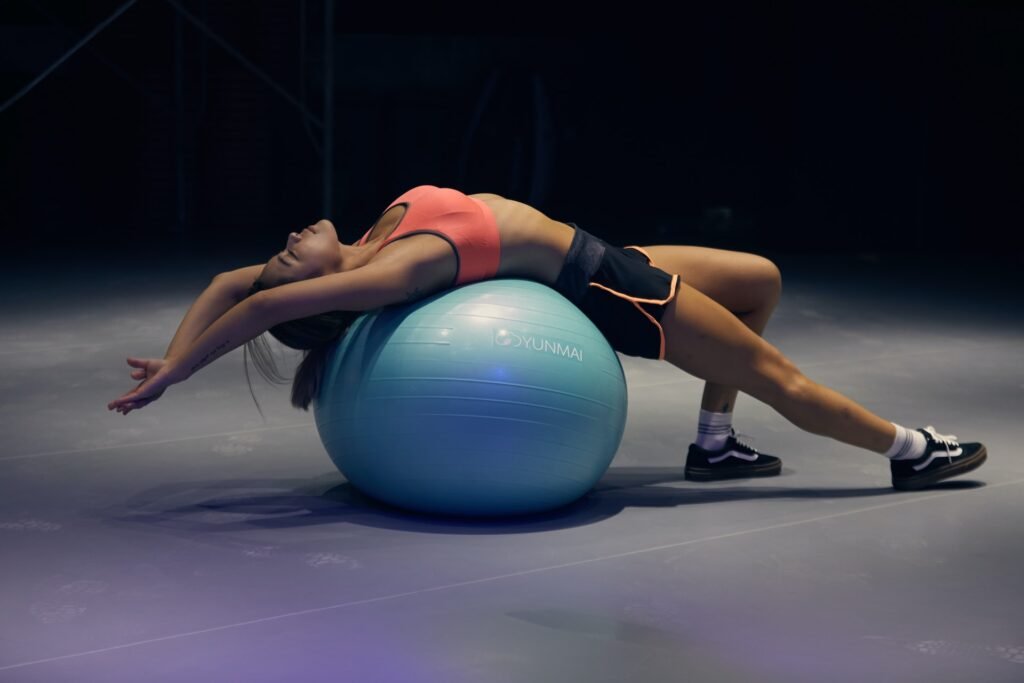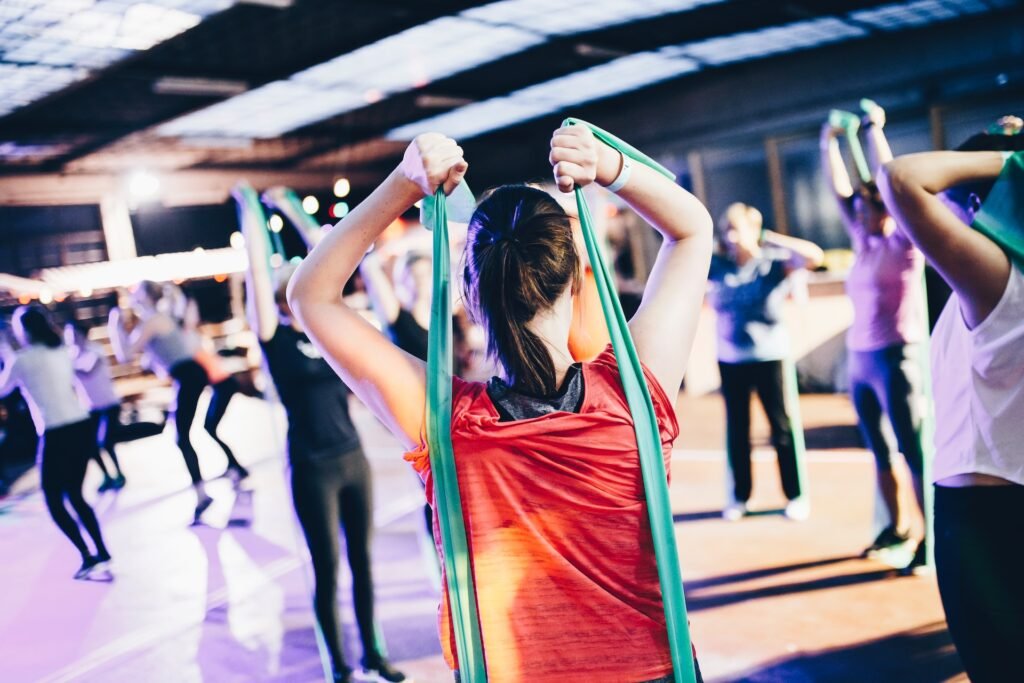Fitness journey is a multifaceted endeavor that extends beyond the boundaries of the gym or the track. In the relentless pursuit of physical excellence, one often overlooks a critical component: sleep. This collection of insights aims to illuminate the intricate relationship between sleep and fitness, exploring the science behind optimal sleep duration, debunking prevalent myths, and guiding you in finding the right sleep schedule. As we unravel the mysteries surrounding rest days, delve into the benefits of quality sleep, and offer practical tips to integrate sleep into your fitness routine, the overarching message is clear – sleep is not merely a passive downtime; it is a dynamic force that can significantly amplify your athletic performance and overall well-being. Join us in this exploration as we unlock the secrets to achieving peak fitness through the often underestimated power of quality rest.
| Topic | Description | Tips |
|---|---|---|
| Ideal Sleep Duration | Determining the optimal amount of sleep for peak performance. | Calculate your sleep needs based on age, lifestyle, and activity levels. Aim for 7-9 hours per night. |
| Quality vs. Quantity | Debunking sleep myths and emphasizing the importance of deep, restorative sleep. | Prioritize the quality of sleep over the number of hours. Create a conducive sleep environment. |
| Night Owls vs. Early Birds | Understanding how your natural chronotype influences sleep patterns and fitness outcomes. | Align your sleep schedule with your chronotype for improved sleep quality and performance. |
| Creating a Sleep-Fitness Routine | Practical tips for integrating quality sleep into your fitness journey. | Establish a consistent sleep routine, optimize your sleep environment, and incorporate winding down rituals. |
| Rest Days and Fitness Success | Exploring the role of rest days in preventing overtraining and promoting muscle recovery. | Schedule regular rest days, listen to your body’s signals for needed breaks, and focus on active recovery activities. |
| Benefits of Quality Sleep | Decoding the science behind how sleep impacts hormones, muscle growth, and immune function. | Prioritize deep sleep stages, manage stress to regulate cortisol levels, and ensure a well-balanced diet for overall health. |
| Tracking Sleep for Fitness | Utilizing wearable devices and apps to monitor sleep patterns and progress. | Choose a reliable sleep tracking device, analyze patterns for improvements, and adjust your routine accordingly. |
| Finding Your Chronotype | Identifying whether you are a night owl or an early bird to optimize sleep timing. | Pay attention to your natural preferences for sleep and align your schedule accordingly for better energy levels. |
| Nap Strategies for Fitness | Incorporating strategic power naps for energy boosts without disrupting nighttime sleep. | Keep naps short (around 20 minutes), schedule them earlier in the day, and avoid napping too close to bedtime. |
| Consistency in Sleep Schedule | Establishing a regular sleep routine for improved overall sleep quality. | Set consistent bedtime and wake-up times, even on weekends, to regulate your body’s internal clock. |
- The Science of Rest Days: Unveiling the Mystery
- Why Rest Days Matter in Your Fitness Journey
- Decoding the Benefits: The Science Behind Rest Days
- Finding the Right Balance: How Often Should You Rest?
- Calculating the Sweet Spot: Ideal Sleep Duration for Peak Performance
- Quality vs. Quantity: Debunking Sleep Myths in Fitness
- Night Owls vs. Early Birds: Finding Your Ideal Sleep Schedule
- Practical Tips: Creating a Sleep-Fitness Routine for Success
- Final Thoughts:
- FAQs:
The Science of Rest Days: Unveiling the Mystery
Fitness enthusiasts often find themselves caught in the paradox of pushing their limits for progress while recognizing the importance of rest. In this exploration, we will delve into the science behind rest days, demystifying the crucial role they play in optimizing your fitness journey.
Understanding the Basics: What Constitutes a Rest Day?
Before delving into the science, it’s essential to establish what a rest day entails. Contrary to popular belief, a rest day doesn’t mean complete inactivity. Instead, it involves a break from intense workouts, allowing your body to recover and adapt.
Why Rest Days Matter in Your Fitness Journey
Rest days are not an indulgence; they are a necessity for sustained progress in your fitness journey. This section will shed light on the reasons rest days matter and the consequences of neglecting them in your regimen.
Overtraining Dangers: The Pitfalls of Ignoring Rest
One of the primary reasons rest days matter is to prevent overtraining. Pushing your body beyond its limits without adequate recovery can lead to fatigue, decreased performance, and even increased risk of injuries. We’ll explore how rest days act as a safeguard against these dangers.
Muscle Repair and Growth: The Silent Work of Rest Days
Muscles need time to repair and grow stronger after intense workouts. Rest days provide the ideal environment for this process, allowing for the rebuilding of muscle fibers and the replenishment of energy stores. We’ll uncover the intricate science behind this vital aspect of rest.
Decoding the Benefits: The Science Behind Rest Days
Rest days aren’t just about physical recovery; they encompass a myriad of benefits that contribute to overall well-being. This section will decode the science behind the various advantages that stem from incorporating proper rest into your fitness routine.
Hormonal Harmony: Balancing Cortisol and Testosterone
Rest days play a pivotal role in maintaining hormonal balance. We’ll explore how cortisol, the stress hormone, can be regulated through adequate rest, promoting a more favorable environment for muscle growth. Additionally, we’ll delve into the connection between rest days and testosterone, a key hormone for muscle development.
Immune System Boost: Strengthening Your Body’s Defense
Intense workouts can temporarily suppress the immune system. Rest days act as a remedy by allowing the immune system to rebound, ensuring your body is better equipped to fend off illnesses. We’ll uncover the science behind this immune-boosting effect of rest.
Finding the Right Balance: How Often Should You Rest?
While understanding the importance of rest days is crucial, finding the right balance is equally essential. This section will guide you through determining the optimal frequency of rest days tailored to your fitness goals and individual needs.
Listen to Your Body: Signs That It’s Time to Rest
Recognizing when your body needs a break is a skill every fitness enthusiast should develop. We’ll discuss common signs of overtraining and fatigue, empowering you to make informed decisions about when to incorporate rest days into your routine.
Tailoring Rest Frequency to Your Goals: A Personalized Approach
The ideal frequency of rest days varies based on factors such as training intensity, individual recovery capacity, and specific fitness objectives. We’ll provide guidelines to help you tailor your rest schedule to align with your goals, whether they involve building muscle, improving endurance, or enhancing overall fitness.
Calculating the Sweet Spot: Ideal Sleep Duration for Peak Performance
In the pursuit of peak performance, sleep emerges as a crucial factor that often takes a back seat. This section explores the concept of finding the ideal sleep duration – the sweet spot that can significantly enhance your physical and mental capabilities.
Understanding Sleep Cycles: The Blueprint for Ideal Duration
Sleep is not a uniform state; it consists of cycles, each serving a specific purpose. Discovering the optimal sleep duration involves understanding these cycles and ensuring you complete enough cycles for your body to reap the full benefits. We’ll delve into the science behind sleep cycles and how they contribute to your overall well-being.
Individual Variations: Why One Size Doesn’t Fit All
While general recommendations suggest 7-9 hours of sleep, the ideal duration can vary among individuals. Factors such as age, genetics, and lifestyle play a role in determining the sweet spot for each person. Learn how to calculate your ideal sleep duration based on your unique needs and circumstances.
Quality vs. Quantity: Debunking Sleep Myths in Fitness
Quality sleep is the linchpin of optimal performance, yet misconceptions often cloud our understanding. This section debunks common sleep myths in the realm of fitness, emphasizing the importance of quality over sheer quantity.
Myth: More Hours Equal Better Sleep
Contrary to the belief that clocking more hours in bed guarantees better sleep, the focus should be on the quality of those hours. We’ll explore the myth of equating sleep success with the quantity of time spent in bed and the potential pitfalls of this misconception.
Reality: Deep Sleep and Its Impact on Fitness
Quality sleep involves sufficient time in the restorative deep sleep stages. We’ll uncover why the emphasis should be on reaching these crucial stages, and how they contribute to muscle recovery, hormonal balance, and overall fitness gains.
Night Owls vs. Early Birds: Finding Your Ideal Sleep Schedule
The debate between night owls and early birds extends beyond personal preference; it directly impacts your sleep quality and, consequently, your fitness outcomes. This section guides you in finding your ideal sleep schedule based on your circadian rhythm.
Chronotypes: Unraveling Your Natural Sleep Pattern
Understanding your chronotype – whether you’re naturally inclined to stay up late or rise early – is key to optimizing your sleep schedule. We’ll explore how aligning your sleep patterns with your chronotype can lead to more restful and rejuvenating sleep.
Fitness Performance and Sleep Timing: The Crucial Connection
The timing of your sleep can influence your fitness performance. Whether you prefer morning or evening workouts, syncing your sleep schedule with your exercise routine can enhance your energy levels, focus, and overall athletic performance.
Practical Tips: Creating a Sleep-Fitness Routine for Success
Now that we’ve dissected the science behind sleep duration, quality, and timing, let’s delve into the practical aspect of creating a sleep-fitness routine for success.
Consistency is Key: Establishing a Sleep Routine
Consistency is paramount when it comes to sleep. We’ll discuss the importance of establishing a regular sleep routine, including consistent bedtime and wake-up times, to regulate your body’s internal clock and improve the quality of your sleep.
Creating an Ideal Sleep Environment: The Essentials
Your sleep environment plays a significant role in the quality of your rest. From optimizing room temperature to minimizing noise and light, we’ll provide practical tips to create an ideal sleep environment conducive to both rest and recovery.
Winding Down Rituals: Preparing Your Mind and Body for Sleep
In the age of constant stimulation, winding down before sleep is essential. Discover effective rituals to signal to your body that it’s time to transition into a restful state, reducing the impact of external stressors on your sleep quality.
Final Thoughts:
The journey through the intertwining realms of sleep and fitness has unveiled a wealth of knowledge, emphasizing the pivotal role quality rest plays in achieving peak physical performance. From determining the ideal sleep duration to debunking prevalent myths and aligning your sleep schedule with your natural rhythms, we’ve navigated the intricacies of this symbiotic relationship. Recognizing the significance of rest days as a strategic component, decoding the science behind the benefits of quality sleep, and offering practical tips to seamlessly integrate sleep into your fitness routine, we’ve laid the foundation for holistic well-being. As you embark on your fitness journey, remember that sleep is not merely a pause; it is an active catalyst that rejuvenates your body, fine-tunes your mind, and propels you towards unparalleled success. So, embrace the transformative power of quality rest, prioritize your sleep-fitness connection, and witness the remarkable enhancements in your physical prowess and overall health. Sweet dreams, and may they lead you to even sweeter fitness victories.
FAQs:
- Why is sleep important for fitness?
- Quality sleep is crucial for fitness as it aids in muscle recovery, hormonal balance, and overall physical and mental well-being. It enhances your body’s ability to repair and build muscles, boosts energy levels, and contributes to optimal athletic performance.
- What is the ideal duration of sleep for peak fitness?
- The ideal duration of sleep varies among individuals, but generally, 7-9 hours per night is recommended. Factors such as age, genetics, and lifestyle play a role in determining the sweet spot for each person.
- How does sleep impact muscle growth?
- During deep sleep stages, growth hormone is released, promoting muscle growth and repair. Insufficient sleep can hinder this process, leading to slower muscle development and recovery.
- Is it true that more sleep equals better fitness results?
- Quality matters more than quantity. Deep, restorative sleep stages are crucial for fitness gains. Clocking in more hours doesn’t necessarily translate to better sleep if those hours lack the necessary depth.
- Can sleep affect weight loss or gain?
- Yes, sleep influences weight management. Lack of sleep can disrupt hormones related to appetite, leading to increased cravings and potentially affecting weight. Quality sleep supports a balanced hormonal environment.
- How do rest days contribute to fitness success?
- Rest days are essential for preventing overtraining, allowing muscles to repair and grow stronger. They also help prevent fatigue and reduce the risk of injuries, contributing to sustained fitness progress.
- Should I prioritize a consistent sleep schedule?
- Yes, consistency is key. Establishing a regular sleep routine helps regulate your body’s internal clock, improving the overall quality of your sleep and supporting better fitness outcomes.
- Can night owls and early birds have different sleep needs for fitness?
- Absolutely. Understanding your natural chronotype (whether you’re a night owl or an early bird) is crucial for optimizing your sleep schedule. Aligning your sleep patterns with your chronotype can positively impact your fitness performance.
- Are naps beneficial for fitness enthusiasts?
- Strategic power naps can be beneficial for boosting energy and focus without interfering with nighttime sleep. A short nap of around 20 minutes can provide rejuvenation without causing sleep disruption.
- How can I track my sleep for fitness purposes?
- Wearable devices and smartphone apps can help track sleep duration, cycles, and quality. Monitoring your sleep patterns can provide valuable insights into your overall health and fitness progress.



